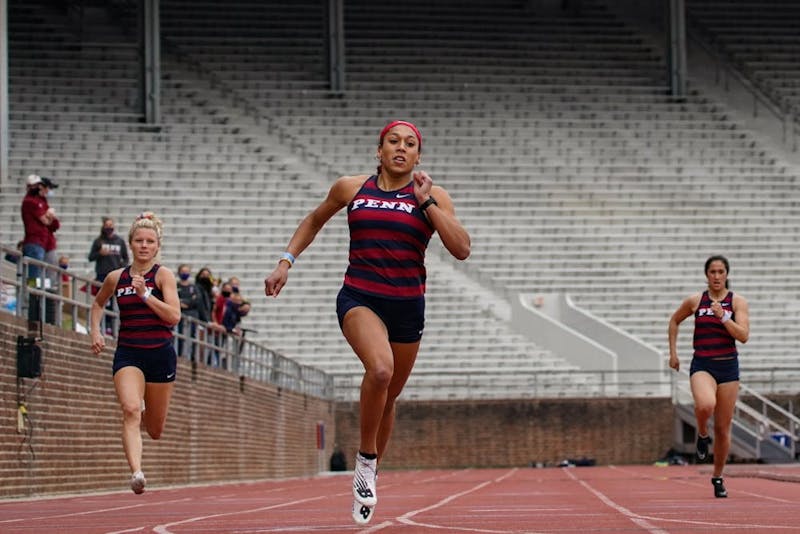
Three former Penn swimmers have filed a lawsuit against Penn, Harvard University, the Ivy League, and the NCAA for allegedly violating Title IX by allowing 2022 College graduate Lia Thomas — a transgender woman who competed in Penn’s women’s swimming and diving program — to compete in the 2022 Women’s Ivy League Swimming and Diving Championships.
The case was filed in federal court on Feb. 4 and alleges that the four defendants violated Title IX regulations by allowing a “trans-identifying male swimmer” to compete in the 2022 Ivy League Championships.
The three swimmers are seeking relief for “damages for pain and suffering, mental and emotional distress, suffering and anxiety, expenses costs and other damages against the NCAA, Ivy League, Harvard, and UPenn due to their wrongful conduct.”
A request for comment was left with the University and Penn Athletics. Thomas did not immediately respond to a request for comment.
The suit was filed by 2022 College graduate Grace Estabrook, 2024 College graduate Margot Kaczorowski, and 2024 College graduate Ellen Holmquist — all of whom competed with Thomas during the 2021-22 swimming season.
The suit is another major development in the national controversy surrounding transgender athletes in women’s sports. The day after the suit was filed, Trump signed an executive order explicitly banning transgender athletes from women’s sports.
In the case filing, the plaintiffs allege that Thomas’ participation in the Ivy League Championships violates Title IX — a federal law that prohibits sex discrimination in educational programs that receive federal funding.
The three former Penn swimmers alleged that the defendants deprived them and other competitors “of equal opportunities as women to compete and win while being denied the opportunity to protect their privacy in separate and equal locker rooms” by allowing Thomas to represent Penn women’s swimming and diving.
Holmquist, specifically, alleged that she was left off of Penn’s 2022 Ivy League Championships roster because of Thomas. Estabrook and Kaczorowki competed at the championships, but they allege that they finished one place lower than they would have if Thomas had not competed.
The suit includes Harvard as a defendant because it served as the host school for the 2022 Ivy League Championships. The plaintiffs allege that Harvard violated Title IX by allowing Thomas to compete at the meet and not providing a “unisex bathroom or separate bathroom for Thomas to use or for any other women to use who did not want to use the Women’s Locker room while Thomas was using it.”
The plaintiffs also allege that Ivy League Executive Director Robin Harris and other members of the Ivy League Council of Presidents used Thomas to “engineer a public shock and awe display of monolithic support for biological unreality and radical gender ideology.”
“This lawsuit exposes the behind-the-scenes scheming that led to the attempt by Harvard University, UPenn, the Ivy League, and the NCAA, to impose radical gender ideology on the American college sports landscape,” attorney Bill Bock, who is representing the three swimmers, wrote in a written statement to The Daily Pennsylvanian.
In the lawsuit filing, the plaintiffs also argued for the suit to be a class action, citing that the case meets the criteria outlined under the Federal Rule of Civil Procedure. The three swimmers are the proposed representatives of the class — all female athletes who were allegedly negatively affected by Thomas’ participation in the 2022 Ivy League Championships.
Thomas competed for the Penn women’s swimming and diving team during the 2021-22 season following her transition. During that season, Thomas garnered multiple accolades, including an NCAA championship in the 500-yard freestyle, three Ivy League titles, and numerous pool and program records.
The Daily Pennsylvanian is an independent, student-run newspaper. Please consider making a donation to support the coverage that shapes the University. Your generosity ensures a future of strong journalism at Penn.
Donate









